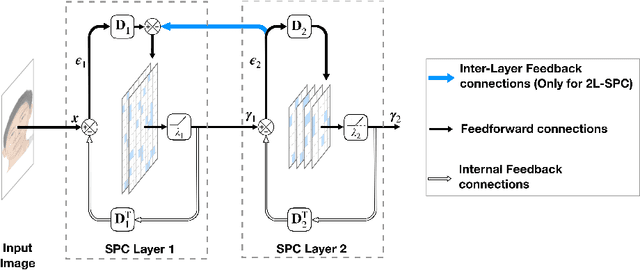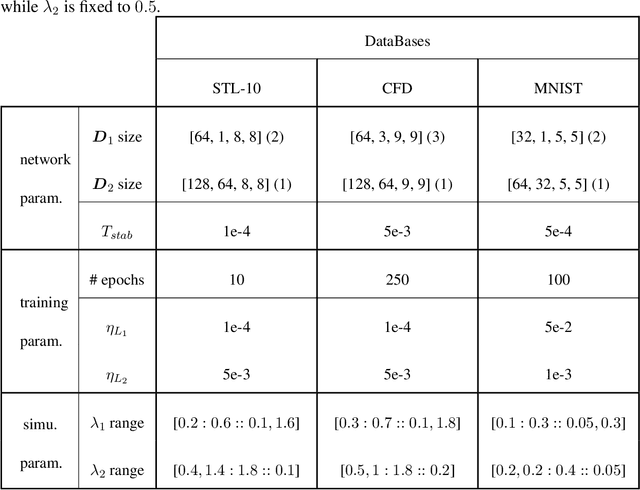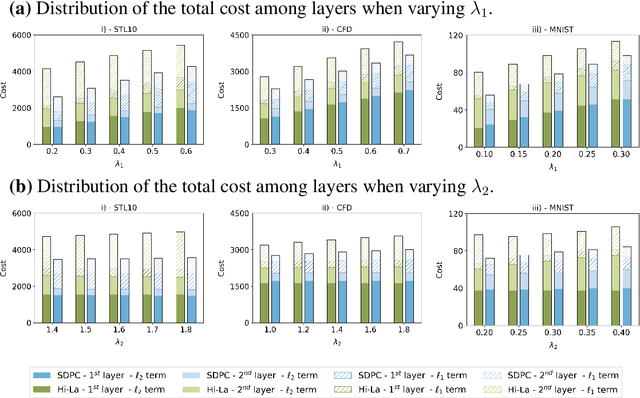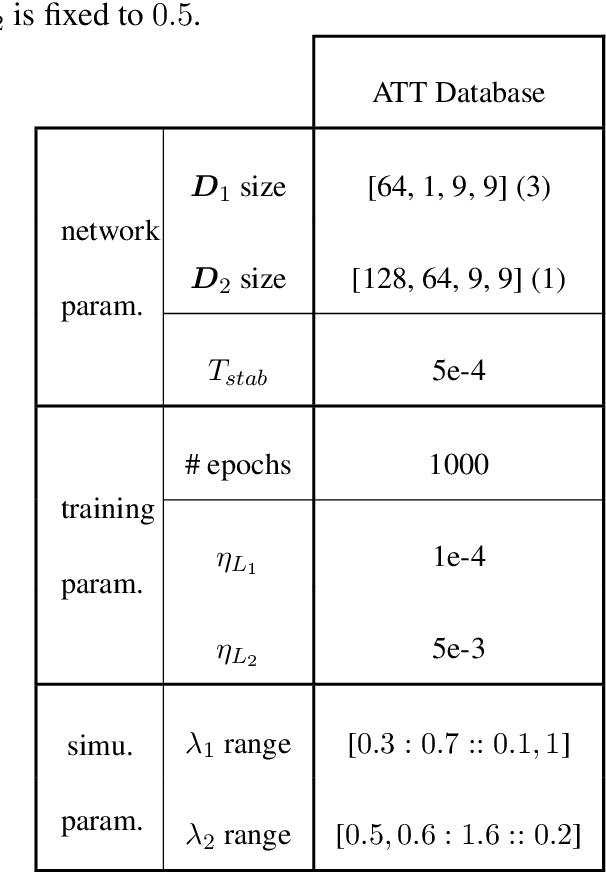Effect of top-down connections in Hierarchical Sparse Coding
Paper and Code
Feb 03, 2020



Hierarchical Sparse Coding (HSC) is a powerful model to efficiently represent multi-dimensional, structured data such as images. The simplest solution to solve this computationally hard problem is to decompose it into independent layer-wise subproblems. However, neuroscientific evidence would suggest inter-connecting these subproblems as in the Predictive Coding (PC) theory, which adds top-down connections between consecutive layers. In this study, a new model called 2-Layers Sparse Predictive Coding (2L-SPC) is introduced to assess the impact of this inter-layer feedback connection. In particular, the 2L-SPC is compared with a Hierarchical Lasso (Hi-La) network made out of a sequence of independent Lasso layers. The 2L-SPC and the 2-layers Hi-La networks are trained on 4 different databases and with different sparsity parameters on each layer. First, we show that the overall prediction error generated by 2L-SPC is lower thanks to the feedback mechanism as it transfers prediction error between layers. Second, we demonstrate that the inference stage of the 2L-SPC is faster to converge than for the Hi-La model. Third, we show that the 2L-SPC also accelerates the learning process. Finally, the qualitative analysis of both models dictionaries, supported by their activation probability, show that the 2L-SPC features are more generic and informative.
 Add to Chrome
Add to Chrome Add to Firefox
Add to Firefox Add to Edge
Add to Edge